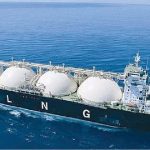Singapore — The sharp fall in spot LNG prices to record lows is forcing Pakistan to weigh options on whether to cancel or renegotiate term deals, with policymakers and industry officials saying that entirely backing out of contracts may provide short-term gains but will bring pain in the longer term.
Although oil-linked deals in a low-priced environment is forcing Pakistan to pay more than levels at which it can currently source cargoes from the spot market, the country’s fast-growing LNG consumption means Pakistan has to work toward strengthening relations with suppliers, instead of weakening them.
“Although penalties would be quite steep for terminating these contracts, Pakistan might actually end up saving money. There are obviously other costs to consider with these types of decisions, along with considerations around security of supply,” said Jeff Moore, manager for Asian LNG Analytics at S&P Global Platts.
Platts JKM currently has an implied slope of less than 5% compared to the average Brent price over the past three months. Platts Analytics expects JKM to remain below the $4.50/MMBtu on an annualized basis through 2021.
“So you can see that this is far below where these high oil-indexed cargoes would be priced at. Unless Brent were to fall below $39/b or so, which isn’t expected to happen, the spot market would remain much more competitive,” Moore said.
Ghiyas Paracha, chairman of All Pakistan CNG Association, said that Pakistan should neither scrap nor revisit the LNG contract with Qatar unless there is a provision in the contract as the price slide in global market would likely be temporary.
Instead, encouraging spot imports by private companies at low prices and blending those volumes with term cargoes would help to absorb the shock to some extent.
“If Pakistan ends the contracts and then goes and knocks the doors of supplying countries or global companies, they would not honor our deals,” he added.
Cost and benefit
Samiullah Tariq, research director at Arif Habib, said it was a bit tricky for the government to decide whether to renegotiate or scrap the term contracts.
If Pakistan decides to cancel the term contracts, it can only recover the losses arising out of paying for termination clauses if global LNG prices remain at current levels for at least 10 months. “It would have been easy to make a decision if the penalty clause was not involved,” he said,
“If the government opts for any changes in contracts who knows whether it would be viable down the road in, say, six months or so. Instead, the government should negotiate for LNG prices to be linked with gas benchmarks instead of oil,” he added.
Pakistan has term contracts to import 6.78 million mt of LNG annually, Platts Analytics data showed.
Pakistan State Oil Co. has a 3.75 million mt/year import contract with Qatar Gas for the period from 2016-2030. Pakistan LNG has term deals with Indonesia, Gunvor and Eni for 1.5 million mt/year from 2020-2029, 0.8 million mt/year from 2017-2021 period and 0.73 million mt/year from 2017-2032, respectively.
Its Brent-linked term contracts with Gunvor and Eni at weighted average of 11.62% of Brent and 12.046% of Brent, respectively, are much higher than prevailing spot LNG prices.
For the Gunvor and Eni contract, the average import price until February 2020 has been $7.62/MMBtu and $7.71/MMBtu, respectively, according to Platts calculations. Whereas, the DES West India prices, a better proxy for cargo prices delivered into Pakistan, was at $7.167/MMBtu over the same period.
Record low prices
JKM, the benchmark for spot LNG prices in North Asia, has plunged to record lows this year — $2.713/MMBtu on February 14 — on the back of increased production from US and Australia, warmer than usual winter dampening demand and the outbreak of coronavirus which has tightened its bearish grip on the market.
With Pakistan turning out to be one of the fastest growing LNG markets since it first started importing in 2015 — imports rose to 8.4 million mt in 2019 from 6.8 million mt in 2018 — analysts say there is an urgent need to speed up import capacity expansions, which have been planned in order to absorb incremental inflows.
Platts Analytics forecasts LNG imports to pick up to 12.4 million mt in 2021 if Pakistan can bring in another floating storage and regasification unit relatively quickly, and imports are expected to exceed 17 million mt by 2025. This will help underpin growing gas demand as well as offset declining production.
The country is now moving toward the next phase of LNG import capacity expansion with government approvals for five new terminals, while also taking steps to further liberalize its natural gas sector through third-party access to distribution infrastructure.







